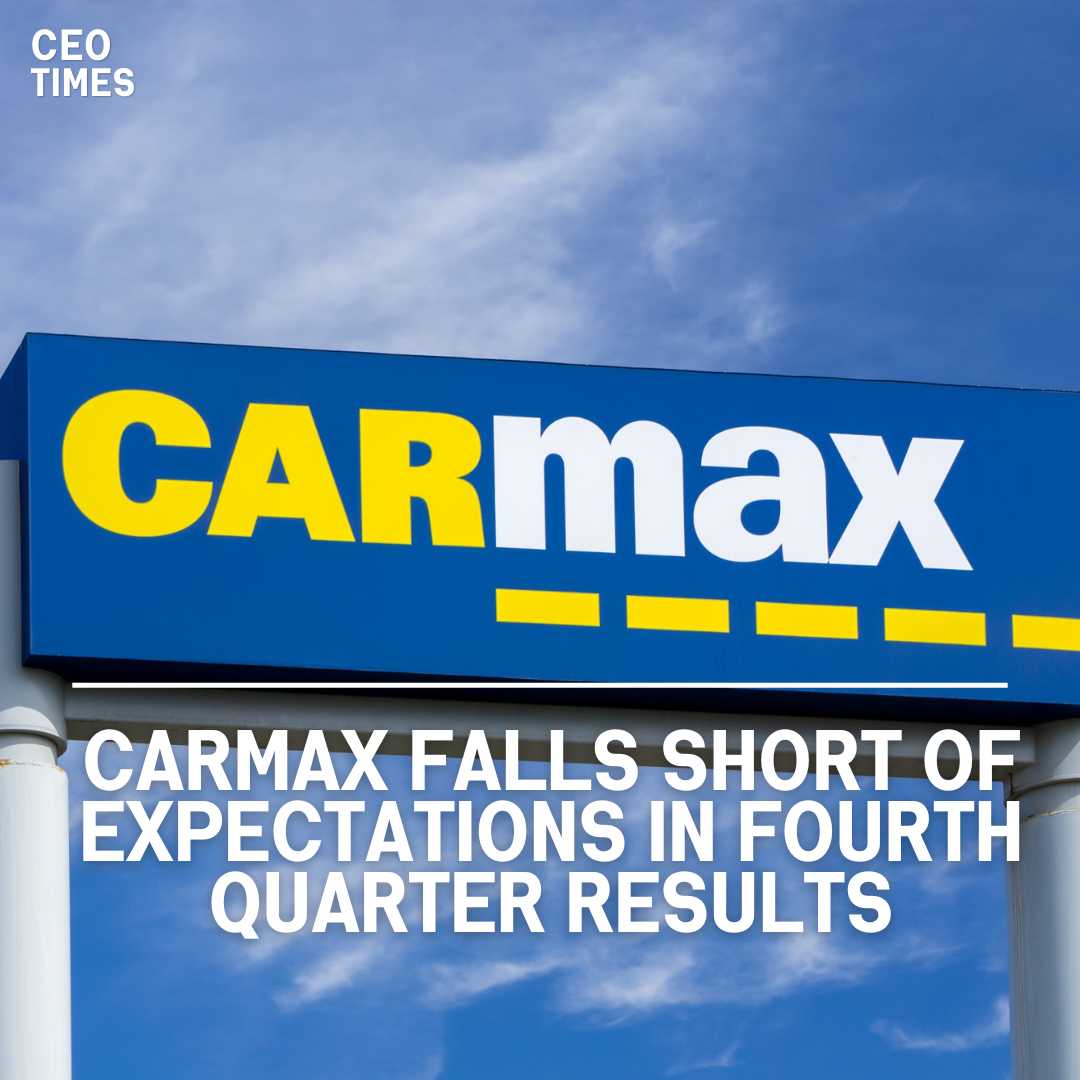CarMax, a prominent pre-owned vehicle retailer, reported fourth-quarter financial results that fell short of analysts’ expectations on both profit and revenue. Following the announcement, the company’s shares tumbled by as much as 13% in premarket trading.
Factors Impacting Performance:
Like other used-car retailers, CarMax faced challenges stemming from decreased profitability on units sold. The company attributed this decline in profitability to several factors, including heightened vehicle prices during the pandemic, which led to affordability challenges for consumers. Additionally, widespread inflationary pressures further exacerbated the situation.
Impact of New Vehicle Supply:
While the pandemic-induced supply constraints initially benefited used-car retailers by inflating prices, the improved supply of new vehicles altered market dynamics.
This shift compelled CarMax and its counterparts to reduce spending and offer significant discounts on cars, resulting in some cases when vehicles were sold for less than their acquisition cost.
Financial Metrics:
In the fourth quarter, CarMax reported a net income of $50.3 million, or 32 cents per share, compared to $69 million, or 44 cents per share, in the same period the previous year.
According to LSEG data, analysts had anticipated a net income of 49 cents per share. Additionally, the company’s net revenue for the quarter declined by 1.7% to $5.6 billion, falling short of analysts’ estimates of $5.8 billion.




















